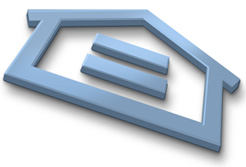Learn simple, effective and low-cost ways to collect past-due homeowners association fees.
If you own property that is managed by a homeowners association, then you know the importance of the fees that are collected from each owner. Those association fees cover common expenses, help maintain the property and finance any amenities your property affords.
So when some owners in your association don’t pay their fair share, it affects everyone—and could have negative financial consequences such as deferred maintenance, shuttered amenities and decreased property value.
But there are ways to collect.
Follow your bylaws.
Check your association’s bylaws and governing documents for collection procedures and act on them to the letter. Contact attorneys, accountants or collection agencies as necessary to help you.
Change your bylaws.
If your rules are outdated or simply aren’t effective, your board has the power to modify them. When changing the rules, however, remember that they must be applied uniformly to all owners.
Work with the owner.
Sometimes the money just isn’t there. If the delinquent owner is going through financial hardships, be willing to negotiate. Perhaps late penalties can be waived and a payment plan can be set up. Remember, this isn’t just a delinquent owner—they’re also your neighbor.
File a lien.
If you’ve done all you can and still can’t collect, a lien can be filed against the delinquent owner’s unit. A lien is a legal claim placed on a property that has to be paid off when an owner sells.
While homeowners associations are usually third in line to receive payment (after federal/state taxes and the bank), filing a lien shows that the board is serious about collecting. Once the lien is filed, notify the bank that holds the owner’s loan—you may received added support in the way of pressure applied to the owner from their bank.
Go to small claims court.
When you’ve exhausted all your avenues and still can’t collect delinquent fees, it may be time to go to court. The dollar limit for small claims court varies from state to state, but in most cases will cover delinquent association fees. (Find information on small claims court, including the dollar limit for your state.)
Throughout all these steps, it is important to be diligent, be professional and be firm.
This article contains general information. Individual situations are unique; please, consult your attorney, accountant or other professional before utilizing any of the information contained in this article.
Related Articles
- Assessments, Dues, and Fees -- Oh My!
- What is an HOA or Homeowner Association?
- How to Start a Neighborhood Association
- HOA Website Can Save Money And Increase Communication
- How Neighborhood Assoc Websites Can Increase Participation
- A Condo Association Website Can Facilitate Communication
- Neighborhood Watch-How to Start One!
- Utilizing a Neighborhood Watch Website
- An Effective Meeting Agenda
- Funding a Reserve Study
- HOA Maintenance - Who Has Responsibility for What?
- Budget Preparation Tips
- Directory of Association Articles
 Print
Print Email
Email








